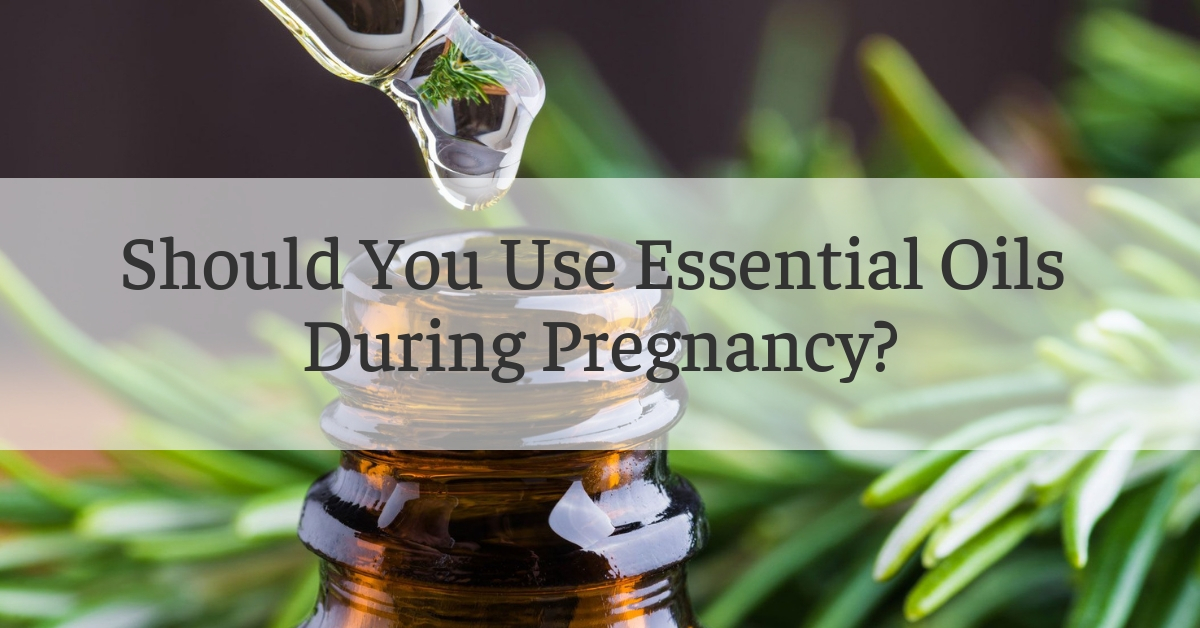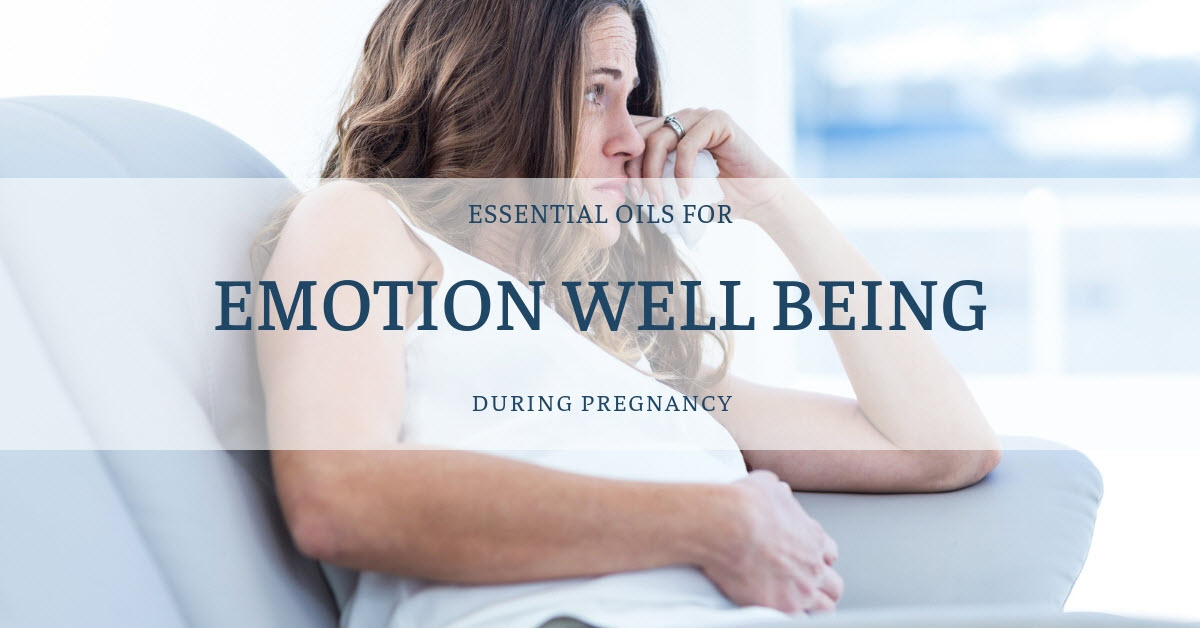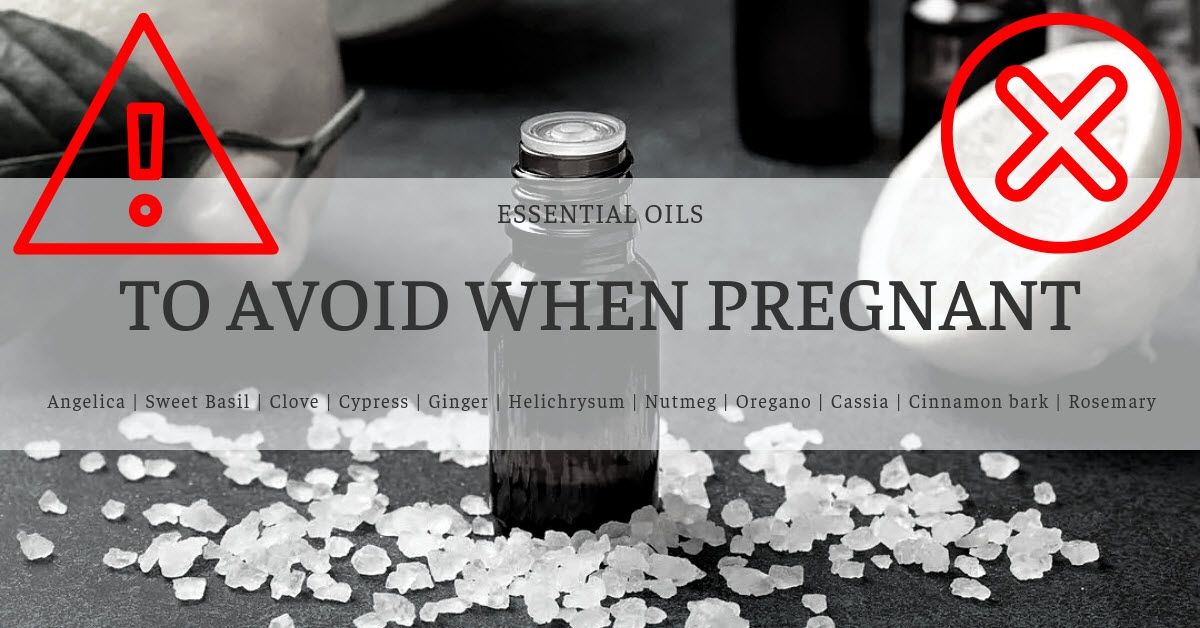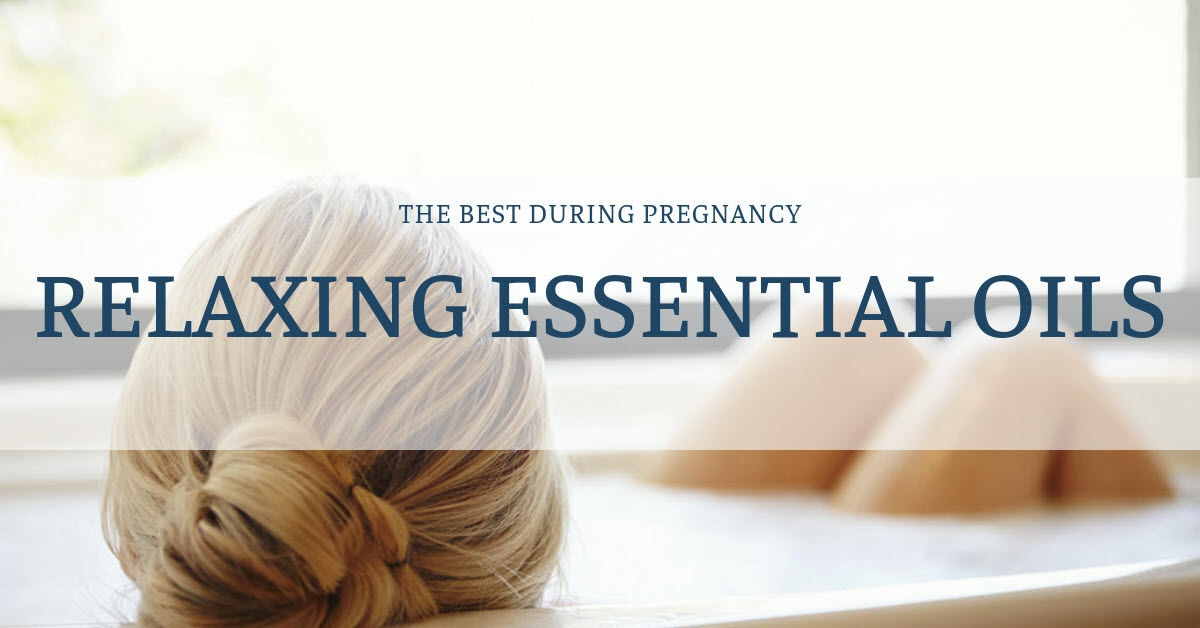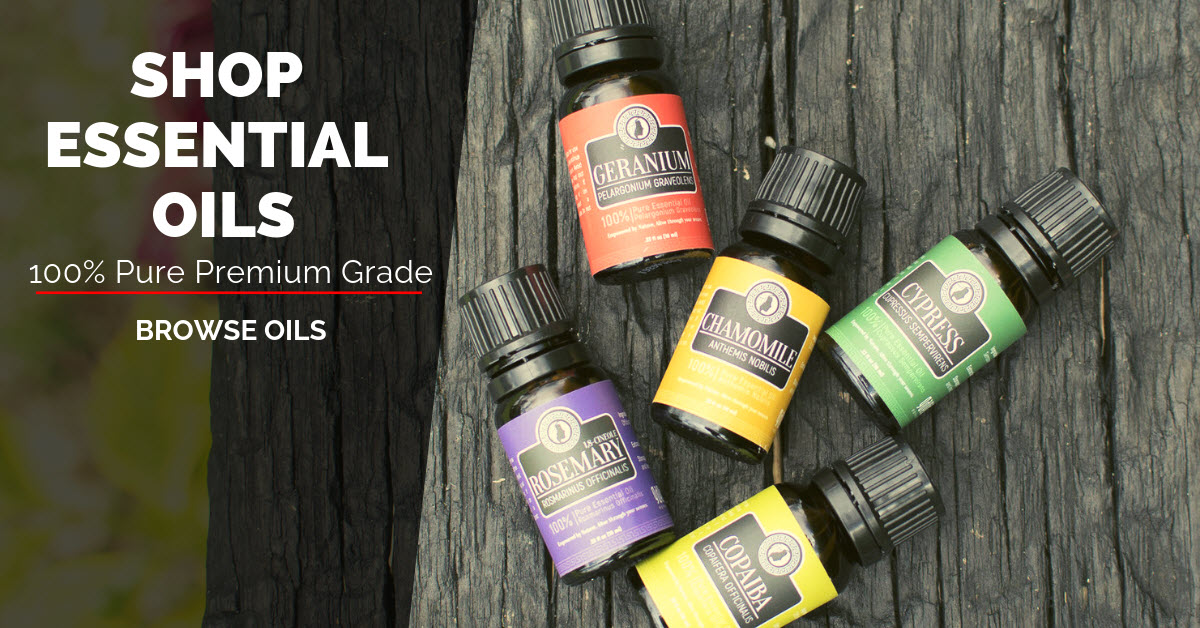Pregnancy.
One of the most precious times in a woman’s life, full of imagination and possibilities. Your hair looks glorious your breasts become fuller and you walk around with a radiant glow as life emerges inside of your very body.
Who am I trying to kid!
That was certainly not my reality.
Three kids down the line. Each time I felt like an alien was taking over my body, I itched continually and felt freakishly nauseous from the word go.
Here’s the thing…
I am great at giving birth, partly because of essential oils and dreadful at being pregnant and certainly only managed it because of essential oils!!!
They are helpful allies at a time where emotional health is at its most fragile, and potentially when we need support the most.
Sadly, though the Internet makes using essentials during pregnancy frightening and confusing. So, I thought I’d take today to try to reassure some of you that there are certainly ways that you can use aromatherapy to help you through the difficult times and to inspire you to use them to find beauty in a time that later in life you will want to look back on and remember fondly.
The Ethical Dilemma Of Essential Oil Safety During Pregnancy
It’s controversial and sensitive subject with very good reason.
In truth, we have no idea what would happen to a fetus if we used essential oils during pregnancy.
There has never been a historical reported incident of a miscarriage bought about specifically by essential oils. Likewise, there is no scientific data on how babies react to natural substances in-utero.
Ethically, it would be unsound to carry out experiments on an unborn child, so how do we gauge how they may respond if they did come into contact with the oils? We can only base our assumptions on what some of the main constituents in each oil might do to the body.
For example: tea tree encourages the immune system to defend against foreign invaders. It is for fear that the body may not recognize a newly formed blastocyst as its own that we protect the body in the first 16 weeks.
Likewise, rose essential oil is fantastic for treating menstrual problems because it is a uterine tonic. Do we want to encourage the womb to tighten? No, that is a trademark of a labor contraction and should be saved for use at around 37 weeks.
An interesting paradox discussed in Tisserand and Young’s essential oil safety for professionals (2013) is that potentially a fetus’s constitution maybe better equipped to tolerate essential oils than an adult’s. Since their liver is not completely formed, it may be that they do not metabolize the constituents in the same way that we would. It’s an interesting question that potentially will never be answered
So, because we view your newly formed baby as a treasure, we want to protect it. Selfishly, as an aromatherapist, I also want to protect my career from legislation! For this reason, guidelines are in place to suggest that we do not use essential oils during the first 16 weeks of pregnancy.
16 weeks?
At 16 weeks we view the fetus as being strong enough to hold its own against the strength of the essential constituents. Consider, however that the fetus is not legally viable till 20 weeks. If the worst situation took place and miscarriage started to take place the medical community have no obligation to try to save its life. Conversely, specialists in aromatic midwifery may tell you that if all seems well with the pregnancy, and you’re otherwise healthy, there may be no reason to avoid using essential oils after 14 weeks gestation.
Personally, I never touch the essential oil until the day after 16 weeks.
37 weeks
Oils such as Rose (Lavandula angustifolia), Jasmine (Jasminum officinale), Clary Sage (Salvia sclarea) and Myrrh (Communis myrrha) are the diamonds of the labor toolbox.
They relax the mind and body but strengthen uterine contractions, pushing the baby out more efficiently. We don’t want the body to do that too soon. So, we wait until 37 weeks.
Just a note on clary sage: Research shows that if you use clary sage before labor has commenced it can actually slow contractions down so do not use until the midwife confirms full labor.
Jasmine too, avoid use unless contractions are very weak…it can progress labor a little too aggressively sometimes.
Avoid Topical Use Throughout The Pregnancy:
Angelica, Black Pepper, Clove, Cypress, Ginger, Helichrysum, Marjoram, Nutmeg, Oregano, Peppermint, Roman Chamomile, Basil, Cassia, Cinnamon bark, Lemongrass, Rosemary, Thyme, Wintergreen, White Fir.
Emotion Well being During Pregnancy
Later I’ll give you some useful recipes to help with the physical aspects of the pregnancy, but I am keen that people understand how detrimental stress can be to a pregnancy and how powerful and ally essential oils can be during this time.
The 1997-1999 confidential report into maternal deaths listed suicide as the leading cause of maternal death (1). In 2003 it was revealed that it made up a massive 7% of violent deaths in the category (2).
Anxiety is associated with low birth weight babies, not exclusively because of lower gestation periods when stress brings on early labor. (3)
Interestingly, when baby does finally make an appearance, not only will they rely on you for every bit of food comfort and clean diaper, they also take their stress cues from you too.
We all manufacture a stress hormone called cortisol that helps us to fight or take flight during stress. In its correct function it is ant-inflammatory and enables our bodies to respond faster, stronger louder. But, if it is secreted long term it turns on its axis and becomes inflammatory playing a part in many diseases including heart disease and diabetes.
In short cortisol is a friend, but one that you don’t want hanging around all the time.
In 2012 it was discovered that babies cortisol levels do not react to stress, instead, for the first two years of its life, it mimics the mother’s own levels and in turn delivering a stress response instead of reacting to one.
So, consider for a moment, the poor mum who is at her wits end with a baby who won’t stop crying.
Left anxiously on her own, she potentially screams at the baby, in the hope that it will startle it into listening to what she says.
But, biologically, that cannot work because baby’s stress hormones are not responding to mum’s…they are copying them.
It is vital that we keep mum calm.
Let’s begin here.
The following list are oils that should not be used TOPICALLY during pregnancy but can be still be extraordinarily useful when used as inhalation tools.
OILS TO AVOID DURING PREGNANCY
Angelica (Angelica Archangelica)
There are two different angelica oils, one from the root and the other distilled from the seed. Both are gloriously soothing oils and they seem to have a very strong association with death (we use them in hospices) so energetically they do not fit well with new life.
On paper we say avoid angelica, but remember that is only topical administration because on a physical level, angelical oils can stimulate contractions.
Consider how important angelica seed essential oil might be to a woman who is carrying her dead husband’s child. The aromatic molecules speak to her mind of the one who went before and brings the support of the archangels in the important but harrowing journey she has before her.
Sweet Basil (Ocimum basilicum)
There is some suggestion that sweet basil oil may lead to genetic abnormalities or birth defects and so I would advise to categorically avoid topical use.
However, sweet basil is one of my very best friends in life because she is so kick ass! An oil of empowerment she demands you get out of your head, quit worrying about things and get on with life.
She is gloriously astute in calling you on your hang ups and ridiculous notions and would gladly push you over the side of a cliff if she believed it would make you fly.
Inhale sweet basil of you are getting worry headaches or you begin to self sabotage.
Lower levels of Estrogen can mean raised levels of anxiety and depression in some women. Basil scoffs at it and reminds you of the woman you once were and the one who that baby is getting very excited to know.
Inhalation only mind, no topical use.
Clove (Syzygium aromaticum)
Strictly speaking you could use clove in dilutions of around 1% if you really felt the need, but it is a hot and chaotic oil, and potentially might behave in the same way I described tea tree. It’s a tremendously defensive oil; that’s why it is so wonderful for colds, but again, it might decide a fetus should not be allowed in the fortress.
Emotionally though, clove is about as subtle as basil is, really.
But where basil says get out of your head, Clove says “You’re not going to stand for that, are you?”
In these days of ambiguous maternity rights, if you find yourself on the end of unreasonable employment demands, clove will fortify your spirit and stick a spear in your hand.
Inhale deeply…
“Stand up”, he demands,” state your case and remind them just who they are messing with”.
Topically clove is not really your friend in pregnancy. Emotionally, he’s the union rep on crack!!!!
Cypress (Cupressus semperivens)
As I get older, every day I love this oil more.
We avoid it during pregnancy because of its diuretic properties.
Baby needs as much fluid as can get to swim and strengthen those forming legs. Between you and I, the very last thing I needed when I was pregnant was anything else that would make me need the loo…so we don’t use it topically.
Bad plan
But aromatically, it’s fresh gingery, almost citrus aroma makes your heart sing. It lifts sadness and parts the clouds on the very darkest days. In text book speak, we say it relieves negative emotions. Completely astute.
On the days when self-talk is spiteful and unhelpful, cypress (or cedarwood atlas, another big help here) will form a smile. Promise me, the first time you look in the mirror and call yourself “Fat” or a blog” you’ll reach for the cypress. It is a very powerful thing.
Ginger (Zingiber officinale)
Strictly, speaking ginger is safe after 16 weeks, and would be my suggestion if morning sickness was still hanging around, but energetically it can be uncomfortable during pregnancy, which is why I usually suggest to avoid it.
It makes you hot…like furnace hot…and let me guess, you’re hot enough, right?
Oh hell, yeah.
And it makes your brain go super fast, and please don’t take offence, but how good is your body at keeping up? You’ll want to do a million things. There’ll be plans for every drawer I the house but lugging around that belly just won’t match up and it’s depressing.
Ginger just isn’t a master plan
There is one other occasion where ginger is helpful, however, as long as you are not already sweltering in the summer, and that is constipation. If the iron tablets have got you sitting for hours, ginger will soften and speed things up… a lot.
Brace yourself, gal. You’ve been warned.
Helichrysum (Helichrysum italicum)
Another one of my best friends, topically Helichrysum is just too powerful for the body. In test tubes, the oil they call Immortelle can kill both HIV, Hepatitis and HPV viruses. I’m not sure I want to risk new life with a sledge hammer of that magnitude.
And make no mistake, it is a sledgehammer.
When life is at its very worst, Helichrysum is the wall you need to lean upon and it is unyielding.
It is for the wound that will not heal, and so if we are faced with an ulcerated leg then yes, use it n dilutions of not more than 1%, and if your world collapses for some reason, inhale it and close your eyes.
It’s powerful enough to deal with the worst cases of PTSD and horrors we cannot even perceive.
Its grimy, earthy fragrance says “Yes, this is s**t, but you can do this”
If you feel you can’t carry on. First ring a friend, then grab the helichrysum and cling to it for all your life is worth
Nutmeg
To be fair, it is unlikely you would choose this oil for every day use but it can cause hallucinations with some drugs.
Oregano
Like clove, this is a go to oil for coughs and colds, but it is way too powerful for use during pregnancy.
Cassia
As oregano
Cinnamon bark
As oregano
Rosemary
Since rosemary can increase blood pressure it is best avoided during pregnancy
Relaxing Oils for Pregnancy
Lavender (Lavandula angustifolia)
To a newbie it may seem boring that every article begins with lavender, but it is with good cause.
To my mind there is no better oil at relaxing the body and mind as well as reducing itching.
Remembering that oils are best saved for topical use until after 16 weeks, I would recommend adding a drop or two to a tissue and just taking five minutes out of your day to gently sit, breathe and inhale.
Perhaps there is grace in those five minutes of solace to thank the creator for the gift of a body which has been able to build this miracle inside of you. Try to picture and connect with the new person that inhabits your body and look forward to the moment you bring him or her into the world.
Later, if your belly begins to itch as the skin starts to stress, you could also try spritzing with lavender hydrolat to calm the irritation down.
Chamomile Maroc (Ormenis multicaulis)
Chamomile maroc is an interloper in the Chamomile clan, because it is actually not a chamomile at all, so check your labeling carefully.
Blissfully relaxing, it seems not to have a care in the world and is the perfect friend if the hormonal changes have brought anxiety with them.
For many expectant mums, pregnancy can be a scary place. The future feels uncertain and to a certain extent laid out and a little rigged toward a time where not a moment is your own..
Imagine breathing the song of sweet chamomile maroc and you might hear a distant echo of Doris Day.
Que sera sera, she sings Whatever will be will be…
Her apple-y fragrance drifts on the wind like a summers day and brings with her the deep breath of relaxation as you lie back on the grass.
Watch the clouds drift slowly across the sky and feel the shift from worry to…
Let’s just see how it goes.
I’m sure everything will come out OK in the wash…
That’s chamomile marocs magic beginning to work.
Just as an aside, you might want to also inhale her vapors, if morning sickness is getting the better of you too.
Geranium (Pelargonium graveolens.)
If I could only take one essential oil with me to a desert island, I’d take my geranium.
Every girl should have a bottle and should use a little and often.
Often referred to as poor man’s rose, that sells her very short, but it does help describe her hormonal, her emotional and her skin conditioning strengths.
She is also safer to use in pregnancy because she does not have the same uterine actions.
She is femininity in a bottle, so….
If you feel like your body is no longer your own…geranium.
She is tonic to the urinary tract and has also anti-fungal properties. A drop or two in the bath if you have a UTI or a pleasant thrush like visitor, is not only calming, but also helps kiss goodbye to unwanted guests.
More though, geranium oil is probably the most useful oil for stress, and in particular long term stress. I find it incredibly liberating for worries about money too; somehow it seems to let stress simply drift away on the vapors. You can genuinely feel it lifting away from your shoulders. It is a very useful oil.
Frankincense (Boswellia carterii)
I always smile when I see frankincense in the Christmas nativity, because I think if the Magi had been that wise they would have brought the incense earlier. Frankincense truly is a Godsend in pregnancy.
It has two main themes.
The first is that it restores elasticity and the second is it slows down the breath.
Let’s think about the elasticity first.
Tissues…
We have skin of the abdomen, we have extra weight on the thighs and if you are anything like me you have breasts growing way past the size of melons and becoming contenders for Cinderella’s carriage in the panto!
It’s painful and it is disconcerting.
First it helps to remember that the skin is an elastic and intelligent organ. It is designed to grow and retract, but it does need conditioning to help the tissues snap back. Otherwise we end up with fibers like droopy knicker elastic, and your belly is never quite right again.
Add to that how unsightly stretch marks can be, especially if you have very fair skin, then frankincense becomes a very good idea.
But there is more isn’t there, because in labor our perineum stretches to allow baby’s head to pass through.
In some hospitals you can opt to have an episiotomy and have the skin snipped to avoid a ragged tear, but actually, if you control your breathing in labour and prepare the skin with oils to make the skin flexible then on many occasions you can avoid this.
Massaging the perineum with frankincense is a beautiful way to prepare your body for birth.
Next, as stated earlier, frankincense slows the breath.
It cams the ind and takes you into a spiritual almost trance like state, perfect for blocking out fear and distractions and focusing on meeting this tiny being you ad your body have worked so hard to create.
Mandarin (Citrus reticulata)
When life feels like it is beating you, when you are so tired you can hardly lift your head and when you feel like you may have to kill someone if you are sick again…then we need some mandarin.
Its beautiful top note is bubbly effervescent and girly…she is like a giggle waiting to happen.
There is something very civilized about mandarin…which is extremely useful when you have very little nice to say!
It’s another friend to add to the arsenal against sickness and nausea, but it is very much more than that.
Mandarin summons an extra mile of courage and stamina when you’re convinced you have nothing left.
She is a ray of sunshine when the day feels dark and nights feel never ending. Most of all it is help to laugh at yourself when everyone around you is frightened to say a word.
Mandarin is the secret you tell no-one…lest they suggest you smell it because you are being unreasonable, because let’s be fair, it’s OK for us to say it…but anyone else? Well, that’s just rude!
Methods of Application
Normally I would address this later in the article but I think it’s relevant in the context of pregnancy because it’s easy to imagine you can’t use essential oils at all during the first 16 weeks.
That simply isn’t so.
This restriction on using after 16 weeks is confined to using it topically.
We can certainly use essential oils aromatically.
Essential Oils Inhalation During Pregnancy
Spectacular for helping to alleviate morning sickness anxiety depression even shock if that might be relevant.
We can use all sorts of trendy implements such as inhaler sticks diffusers vaporizers even adhesive patches but the best application I have ever found for treating morning sickness is to simply waft the bottle of essential oil under your nose!
If this smell is it too strong and it may be of smells are setting you off then just one drop of essential oil on a tissue works wonders and of course can be kept in your sleeve just like a hanky so you have a subtle fragrance around you of peppermint or ginger that you can help settle your stomach.
Topical Use of Essential Oils During Pregnancy
Massage
Massage is one of the very best things you can do for your body during pregnancy. The power of touch is healing the relaxation is tremendous for your meant mental and emotional well-being as well as babies. There are no restrictions on massage throughout pregnancy. You can enjoy therapeutic massage right the way through. However, if you are going to add essential oils to your carrier oils and do not do so till 16 weeks.
Just one thing to bear in mind, we do not massage the abdomen during pregnancy.
For clarification we will have a massage oil for stretch marks later, and here we would simply stroke in the oils rather than looking to pummel and work the muscles.
Creams and Lotions
The body changes so fast during pregnancy that hopefully some of the more negative symptoms will be fleeting. For this reason, we only need to make very small amounts of preparations, and for this creams and lotions are ideal. We can make an ounce of this or an ounce of that and not have to worry about using too much of our precious resources.
We can apply them liberally as in stretch mark cream or lotions the itching or we might use just very very small amounts such as with our perineum oil.
Regardless we only use essential oils in the bases after 16 weeks pregnancy.
Baths
every pregnant woman is sheer delight!
Personally, I feel that the benefits a drop of lavender oil would have on a stressed pregnancy far outweigh the dangers. However, we keep dilutions very low. No more than one or two drops in essential oil bath.
Essential Oils Recipes For Pregnancy
Inhaler For Morning Sickness
- 5 drops ginger essential oil – (Zingiber officinalis)
- 5 drops chamomile maroc essential oil – (Ormenis multicaulis)
- 10 drops mandarin essential oil –(Citrus reticulata)
Soak the wick of the aromatherapy inhaler into the blend so it drinks it all up, then assemble the inhaler.
If you can bring yourself to pop it up your nose and breathe, do so on alternate nostrils twice.
Alternatively, simply wave it under your nose to allow the molecules to get to work.
Smooth and Bootiful Baby Belly!
- 1/2 fl oz Gotu Kola Carrier Oil (Centella asiatica)
- 1 fl oz Shea Butter (Vitellaria paradoxa)
- 1 tsp Wheat Germ Carrier Oil (Triticum vulgare)
- 1 tsp Vitamin E Oil
- 3 Drops Frankincense Essential Oil (Boswellia carterii)
- 3 Drops Geranium Essential Oil (Pelargonium gravelolens)
- 1 Drop Sandalwood Essential Oil (Santalum album)
First sterilize your jar and top by placing into boiling water for five minutes then placing into a low oven to dry for a further 5 mins. Be careful to protect when removing from the heat.
Gently melt the Shea butter in a bain marie or a double boiler until it liquefies.
Take off the heat.
Blend your essential oils and carriers then add them gently into the melted Shea.
Pour the blend into your prepared jar and leave to cool.
Put the top on when the cream is thoroughly cooled.
Method of use: Gently smooth into the skin daily to nourish the tissues.
- Safety: Only suitable for use after the first 16 weeks of pregnancy.
Slender Ankles Soak
- Deliciously luxurious big bowl of water. Temperature to your liking.
- 1 tbs Epsom Salts
- 1 Drop Lavender Essential Oil (Lavandula angustifolia)
- 1 Drop Geranium Essential Oil (Pelargonium graveolens)
Sit, soak and smile for 20 minutes to allow the oils to thoroughly penetrate the tissues.
- Safety: Only suitable for use after the first 16 weeks of pregnancy.
Blissful Breasts!
Soak your face cloth in the same blend as above for your feet (Epsom salts, lavender, and geranium).
Squeeze the cloth out and lay over your breasts.
Oddly, if it is before your 16 weeks safety window, use cooked cabbage leaves. Place the leaves on your boobs…I’m afraid it’s not a good look, but who the hell cares? Blissful relief from agony!
Itchiness
Lavender hydrolat or cold chamomile tea can be used all the way through the pregnancy.
Essential Oils Perineum Cream
- 1 fl oz Evening primrose Carrier Oil (Oenethera biennis)
- 2 drops Frankincense Essential Oil (Boswellia carterii)
- 1 drop Rose Essential Oil (Rosa damascena)
- 1 drop Geranium Essential Oil (Pelargonium graveolens)
- 1 drop Ylang ylang Essential Oil (Cananga odorata)
Method of use: Locate the bridge that runs from the vagina to the anus. This is the perineum that will stretch to allow the child’s head to emerge.
Use your first and middle finger to gently massage the oil into the skin. Use enough pressure to push down and stretch the skin just a little.
Massage for around five minutes per day
Safety: Do not use before 37 weeks of pregnancy. (Prior to that, feel free to use the evening primrose, geranium and frankincense to begin preparing the tissues.)
Essential Oil Blend for Labor
- 1 fl oz Evening primrose Carrier Oil (Oenethera biennis)
- 2 drops Frankincense essential oil (Boswellia carterii)
- 1 drop Rose essential oil (Rosa damascena)
- 1 drop Clary Sage Essential Oil (Salvia sclarea)
- 1 drop Myrrh Essential Oil (Commiphora myrrha)
Add in:
- 2 drops of mandarin as exhaustion takes hold
- 1 drop of jasmine absolute if contractions are not very strong.
Massage into the lower back as the midwife confirms that labor has now commenced.
Safety: Not suitable for use in the birthing pool and also only after 37 weeks.
Essential oils can bring a beauty and tranquility to a pregnancy and should be seen as a gift. Research shows us that when baby is born he/she can recognize the smell of mum’s amniotic fluid and is soothed by its fragrance.
Implementing aromatherapy gently into your pregnancy will make it easier to transition across when baby is born and to begin using subtle aromatherapy to help bonding and bring about sleep.
Read next:
[1] Suicide: The Leading Case of Maternal Death. Oates, Margaret. 4, s.l. : British Journal of Psychiatry, 2003, Vol. 183.
[2] Maternal Suicide: Rates and Trends. McGowan, Sinclair, Owens. s.l. : Royal College of Widwifery, 2008.
[3] Anxiety, depression and stress in pregnancy: implications for mothers, children, research, and practice. Christine Dunkel Schetter, Lynlee Tanner. s.l. : Current Opions in Psychiatry, 2012.


